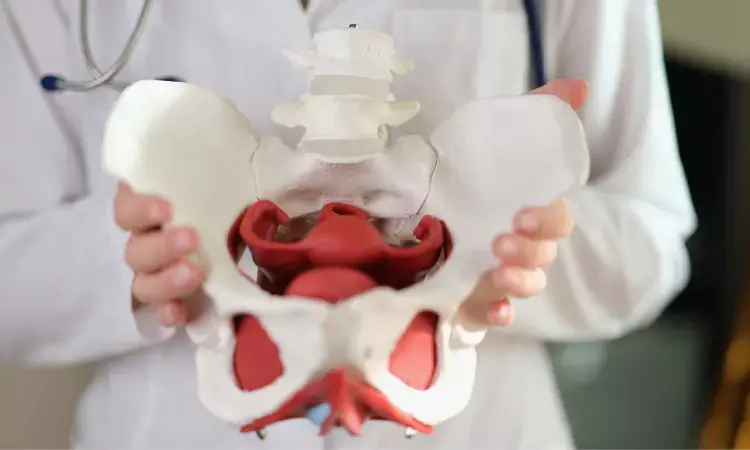- Home
- Medical news & Guidelines
- Anesthesiology
- Cardiology and CTVS
- Critical Care
- Dentistry
- Dermatology
- Diabetes and Endocrinology
- ENT
- Gastroenterology
- Medicine
- Nephrology
- Neurology
- Obstretics-Gynaecology
- Oncology
- Ophthalmology
- Orthopaedics
- Pediatrics-Neonatology
- Psychiatry
- Pulmonology
- Radiology
- Surgery
- Urology
- Laboratory Medicine
- Diet
- Nursing
- Paramedical
- Physiotherapy
- Health news
- Fact Check
- Bone Health Fact Check
- Brain Health Fact Check
- Cancer Related Fact Check
- Child Care Fact Check
- Dental and oral health fact check
- Diabetes and metabolic health fact check
- Diet and Nutrition Fact Check
- Eye and ENT Care Fact Check
- Fitness fact check
- Gut health fact check
- Heart health fact check
- Kidney health fact check
- Medical education fact check
- Men's health fact check
- Respiratory fact check
- Skin and hair care fact check
- Vaccine and Immunization fact check
- Women's health fact check
- AYUSH
- State News
- Andaman and Nicobar Islands
- Andhra Pradesh
- Arunachal Pradesh
- Assam
- Bihar
- Chandigarh
- Chattisgarh
- Dadra and Nagar Haveli
- Daman and Diu
- Delhi
- Goa
- Gujarat
- Haryana
- Himachal Pradesh
- Jammu & Kashmir
- Jharkhand
- Karnataka
- Kerala
- Ladakh
- Lakshadweep
- Madhya Pradesh
- Maharashtra
- Manipur
- Meghalaya
- Mizoram
- Nagaland
- Odisha
- Puducherry
- Punjab
- Rajasthan
- Sikkim
- Tamil Nadu
- Telangana
- Tripura
- Uttar Pradesh
- Uttrakhand
- West Bengal
- Medical Education
- Industry
Low preoperative haemoglobin levels tied to lower survival in patients undergoing surgery for hip fracture

Jordan: A recent study published in BMC Surgery has shed light on the importance of preoperative anaemia screening and management in patients with hip fractures to improve their outcomes and reduce mortality.
The researchers showed that a history of renal disease, low haemoglobin (Hb) levels, advanced age, male gender, ICU (intensive care unit) admission, and extended hospital stays were significantly associated with 6-month mortality.
In recent years, the increasing life expectancy and growing proportion of elderly in the population have made hip fractures a major global public health concern. Hip fracture surgery is linked with a risk of mortality and morbidity, with admission haemoglobin levels being a significant predictor of mortality risk.
Mohammad Ali Alshrouf, The University of Jordan, Amman, Jordan, and colleagues aimed to assess the relationship between preoperative Hb levels and mortality in patients who underwent hip fracture surgeries, to boost prognosis prediction and lower complications within this patient subset. In addition, they also assessed the characteristics of patients at a higher risk of postoperative mortality.
The retrospective study was performed at Jordan University Hospital, a single tertiary care and educational centre. It included patients with hip fractures who underwent surgical repair and were recruited between 2019 and 2022. They examined the relationships between preoperative Hb status and variables such as survival outcomes, ICU admission, duration of hospital stay, comorbidities, surgery type, fracture type, and age at admission. A total of 626 patients were included and the mean age was 76.27 ± 9.57 years.
The researchers reported the following findings:
- 3-month and 6-month mortality rates were 11.2% and 14.1%, respectively.
- The highest mortality was observed in patients aged over 80 years (21.6%), and in male patients (17.7%).
- The haemoglobin level upon admission was lower in individuals who died within 6 months compared to those who survived (10.97 ± 2.02 versus 11.99 ± 2.39).
- In multivariate analysis, the independent factors that were statistically significant in the model included gender (OR = 1.867), age (OR = 1.060), haemoglobin level upon admission (OR = 0.827), history of renal disease (OR = 1.958), length of hospital stay (OR = 1.080), and ICU admission (OR = 1.848).
The study provides insight into the impact of anaemia on mortality after surgery for hip fracture, which can help inform clinical decision-making and patient management. In addition, male gender, history of renal disease, ICU admission, extended hospital stays, and advanced age were predictors for mortality after hip fracture surgery; however, the researchers suggest conducting further studies conducted on a larger sample size so that findings may be extrapolated on the Middle East region and Arab region as a whole.
"We recommend identifying anaemia cases in presurgical periods and starting treatment to improve patient outcomes and avoid surgery complications," the researchers wrote. "Furthermore, it is advisable to institute specific guidelines for blood management in hip fracture surgeries across all healthcare institutions."
"More studies are needed to investigate the use of RBC (red blood cell) transfusions before, during, and after hip fracture surgery and establish a clear cutoff for transfusion," they concluded.
Reference:
Haddad, B.I., Hamdan, M., Alshrouf, M.A. et al. Preoperative hemoglobin levels and mortality outcomes after hip fracture patients. BMC Surg 23, 266 (2023). https://doi.org/10.1186/s12893-023-02174-5
Dr Kamal Kant Kohli-MBBS, DTCD- a chest specialist with more than 30 years of practice and a flair for writing clinical articles, Dr Kamal Kant Kohli joined Medical Dialogues as a Chief Editor of Medical News. Besides writing articles, as an editor, he proofreads and verifies all the medical content published on Medical Dialogues including those coming from journals, studies,medical conferences,guidelines etc. Email: drkohli@medicaldialogues.in. Contact no. 011-43720751


